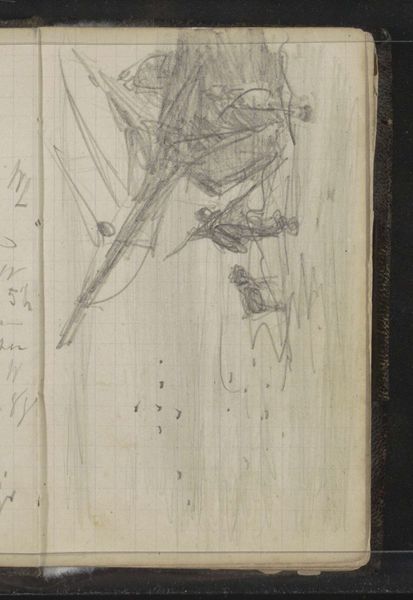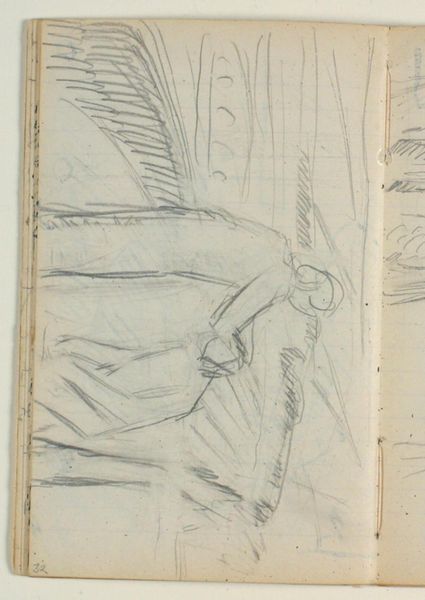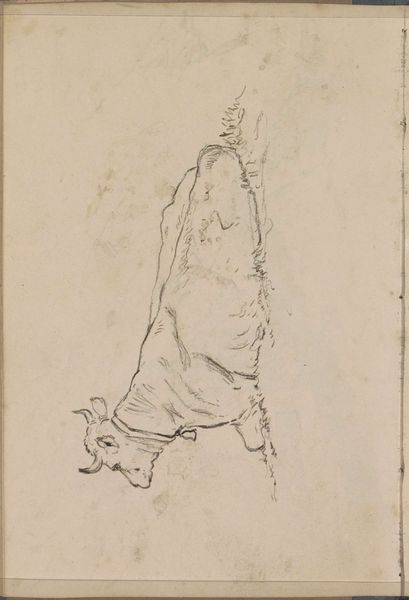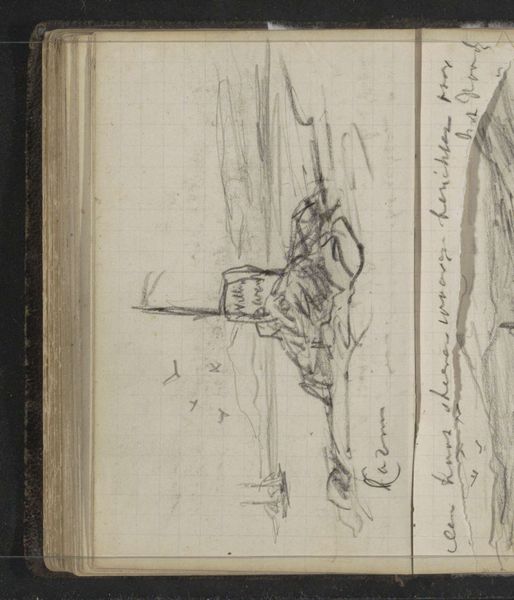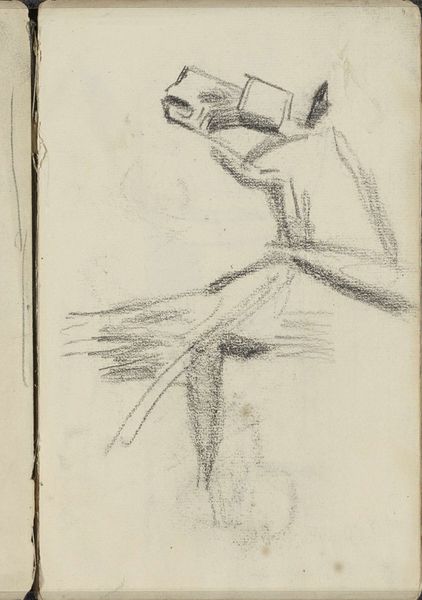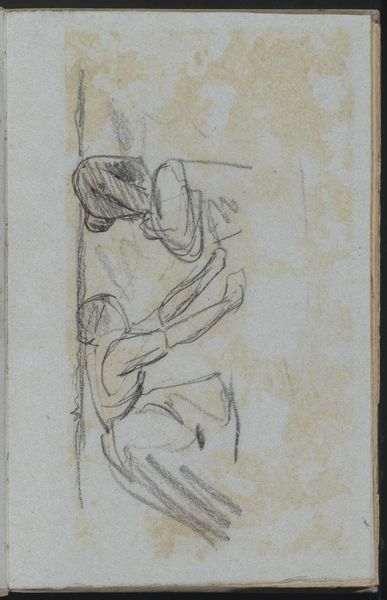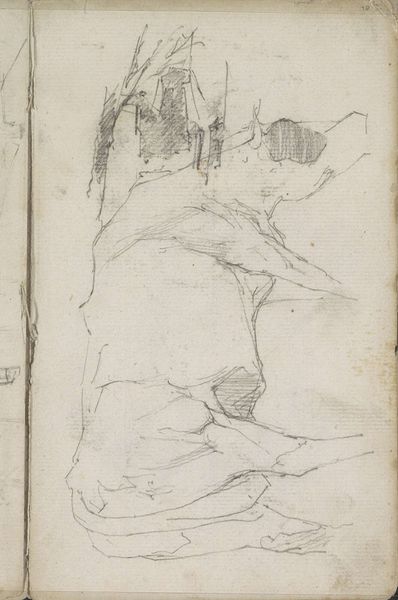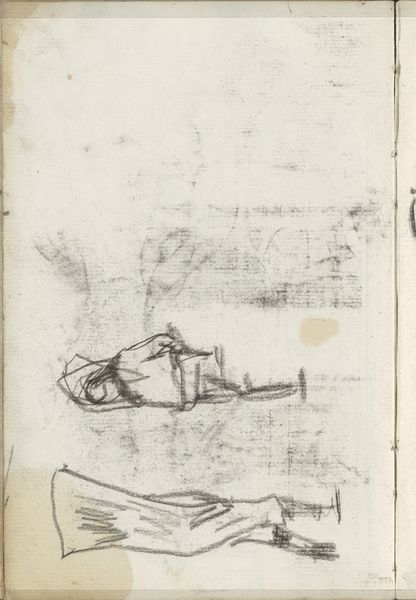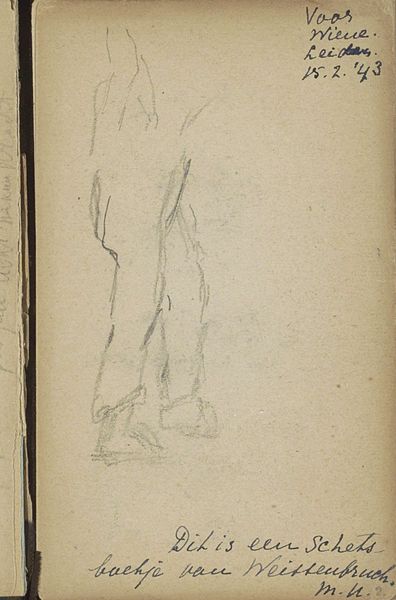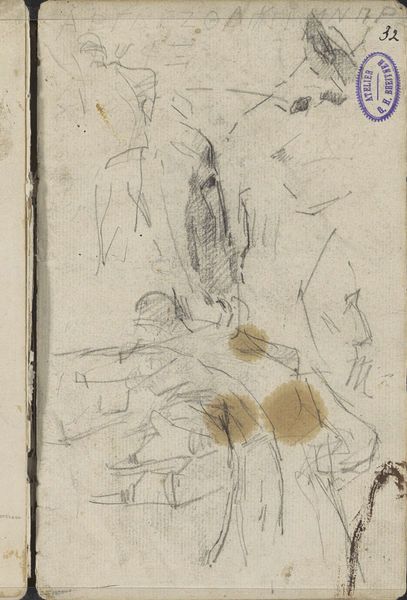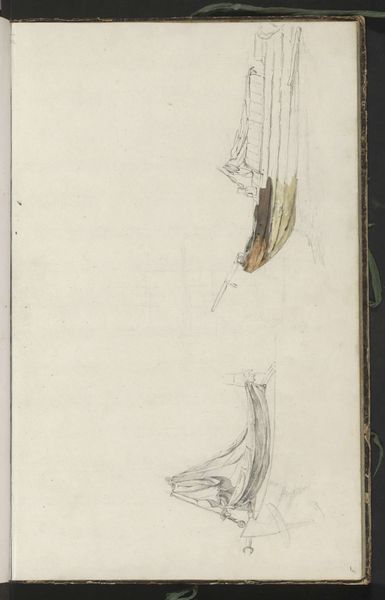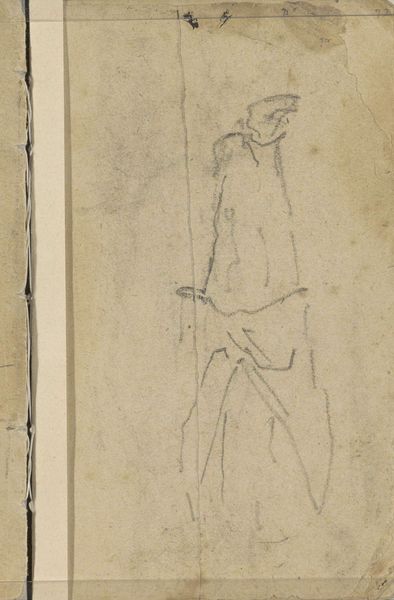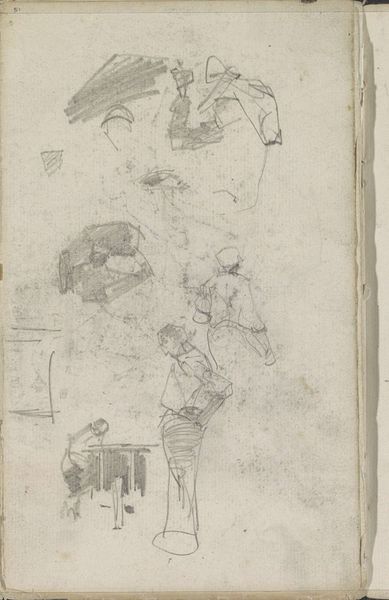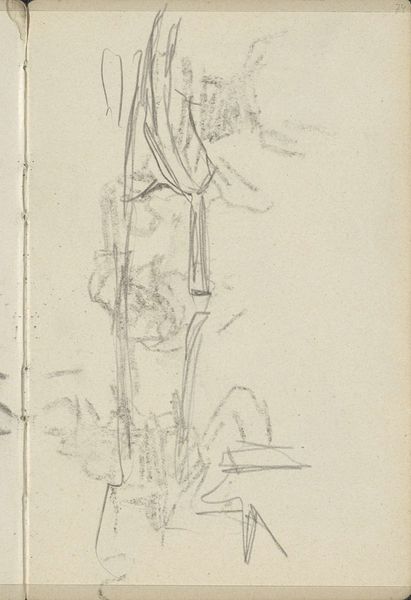
drawing, pencil
#
drawing
#
amateur sketch
#
toned paper
#
sketch book
#
incomplete sketchy
#
landscape
#
personal sketchbook
#
coloured pencil
#
sketch
#
pencil
#
sketchbook drawing
#
watercolour illustration
#
sketchbook art
#
watercolor
#
realism
Copyright: Rijks Museum: Open Domain
Editor: This is Louis Apol's "Hut in de Willemsbaai te Nova Zembla," created sometime between 1880 and 1888. It appears to be a sketch from a sketchbook, a quick study perhaps. What strikes me is the contrast between the very loose, almost chaotic lines describing the landscape, and the more defined shape of what I presume is the hut. What do you see in this piece? Curator: The formal arrangement immediately draws my attention. Notice how the artist utilizes the grid of the sketchbook page to structure the composition. The dense, almost frantic hatching in the upper register creates a powerful sense of depth and texture, while the linear treatment of the hut anchors the eye, providing a stable counterpoint. How do you interpret the artist's choice of such a stark contrast in technique? Editor: Perhaps the sketch-like quality emphasizes the harsh, unforgiving nature of the arctic landscape, while the hut represents human presence in a hostile environment. But beyond subject matter, isn't the lack of a traditional perspectival system slightly disorienting? Curator: Precisely. The tilted plane and compressed space foreground the act of drawing itself. Consider how the tonal variations, achieved through layering pencil strokes, construct volume without relying on conventional shading. The artist directs our focus toward the material qualities of the medium and the surface upon which it rests. Editor: So you are saying the process itself becomes the focal point? It's not necessarily about realistically depicting a place but about exploring the possibilities of pencil on paper. Curator: Precisely. By de-emphasizing representational accuracy and emphasizing formal relationships—line, tone, texture, composition—Apol directs our attention to the fundamental elements of artistic expression. What have you found most insightful about viewing the piece in this manner? Editor: Shifting focus from the literal to the compositional elements definitely encourages a deeper understanding. Thanks for broadening my perspective! Curator: My pleasure. It’s a fruitful approach.
Comments
No comments
Be the first to comment and join the conversation on the ultimate creative platform.
